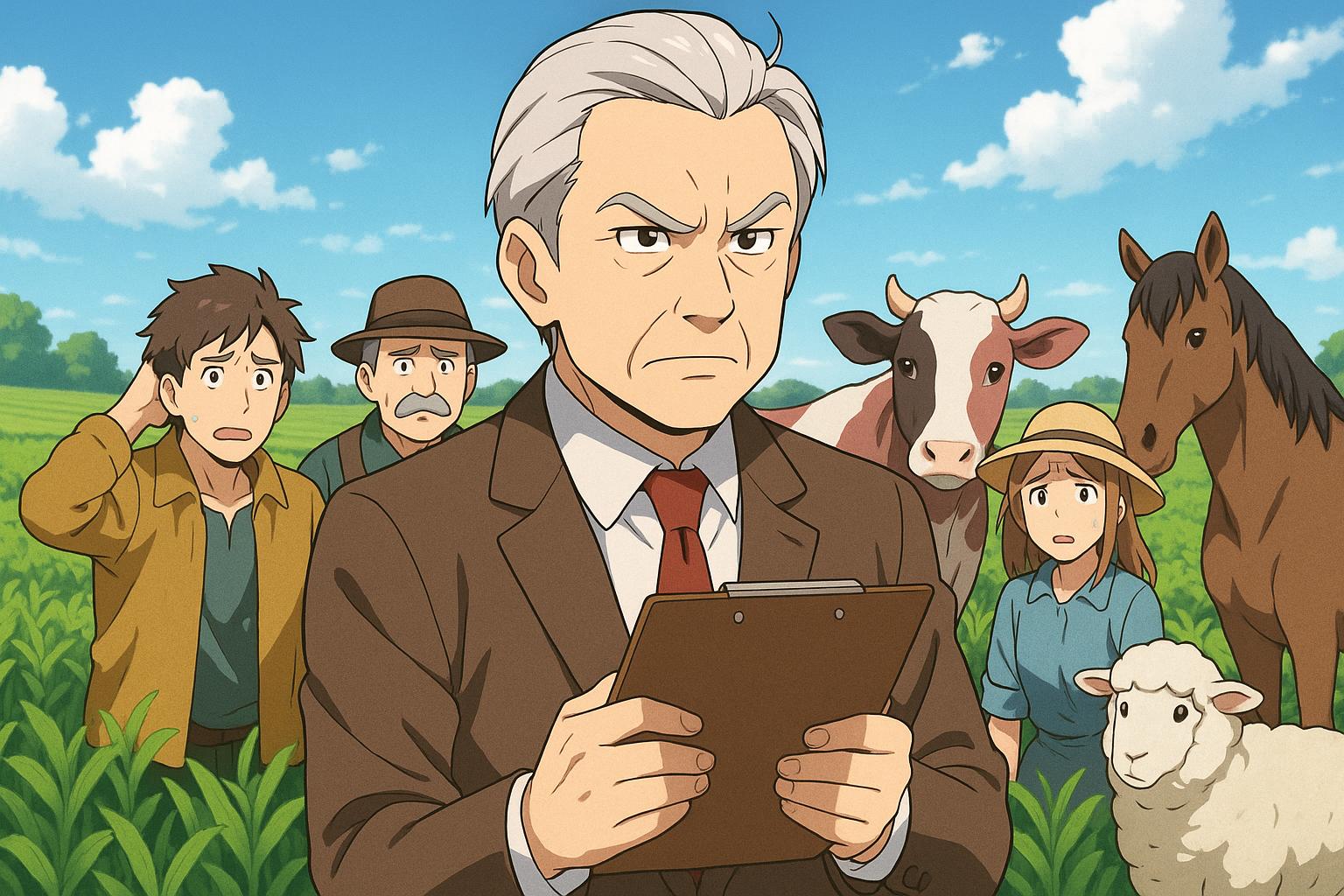In recent months, Farming Minister Daniel Zeichner has found himself at the centre of controversy surrounding proposed changes to inheritance tax that could significantly affect agricultural businesses. These changes, set to take effect in April 2026, will maintain 100% relief for combined agricultural and business property assets up to £1 million. However, farms valued above that threshold will face a 20% tax, a move that many in the farming community perceive as a direct threat to their livelihoods.
Zeichner's approach has sparked heated debate among farmers and industry leaders. In November 2024, he urged those within the sector to “look calmly” at the reforms, suggesting that fewer than 500 farms each year would be impacted by this new tax regime. He maintained that the majority of farmers would remain unaffected and encouraged them to seek personalized advice amidst growing anxiety. This assertion, however, has drawn skepticism from the National Farmers Union (NFU), which argues that the proposed tax change could jeopardise the viability of numerous family-run farms across the nation.
Critics like NFU President Tom Bradshaw voiced their discontent during a recent conference, labelling the government's policy as a "miscalculation" with the potential to have unintended consequences on the agricultural landscape. Concerns about cash-poor, asset-rich farmers losing their land to pay substantial tax bills are widespread. Many fear that this could lead to a situation where viable food production is compromised, as essential agricultural land gets sold off to settle tax liabilities.
In a bid to defend these changes, Zeichner characterises them as "fair and balanced," arguing that they are designed to prevent wealthy individuals from exploiting agricultural land as a tax haven. He asserts that the reforms are aimed at ensuring a level playing field within the agricultural sector. However, his defence has done little to quell unrest among farmers who feel otherwise, and the ongoing dialogue doesn't seem to have brought the reassurance Zeichner intended.
Beyond the inheritance tax debate, Zeichner is also tackling broader issues within the industry, such as the eradication of bovine tuberculosis (TB). He has made it clear that this is a top priority for the government, setting a target for eradication by 2038 and emphasizing the importance of biosecurity and innovative herd management strategies. The ongoing discussion surrounding badger culling continues to polarise opinions, highlighting the complexities involved in managing livestock health in the UK.
Moreover, in light of calls from the tenant farming sector, Zeichner announced plans in November 2024 to appoint England's first Commissioner for the Tenant Farming Sector. This position aims to promote accountability and improve collaboration between tenant farmers, landowners, and associated advisors, thereby addressing longstanding grievances within the sector.
Zeichner’s role on the international stage has also gained prominence. He represented the UK at the G20 Agriculture Ministers meeting in Brazil, where he played a crucial role in securing a declaration aimed at promoting sustainable agriculture and enhancing food security worldwide. The declaration addresses pressing issues such as poverty, climate change, and biodiversity loss, reinforcing the need for international cooperation in developing sustainable agricultural practices.
As the farming community grapples with these evolving challenges, the path forward remains uncertain. With key decisions looming and widespread concern regarding the impact of tax reforms, negotiations within the agricultural sector and the broader government will likely intensify in the coming months. The outcome remains to be seen, and with strong sentiments on both sides, the stakes have never been higher.
Reference Map:
- Paragraphs 1-2: (1), (2)
- Paragraphs 3-4: (3), (4)
- Paragraphs 5-6: (5)
- Paragraph 7: (6), (7)
Source: Noah Wire Services
